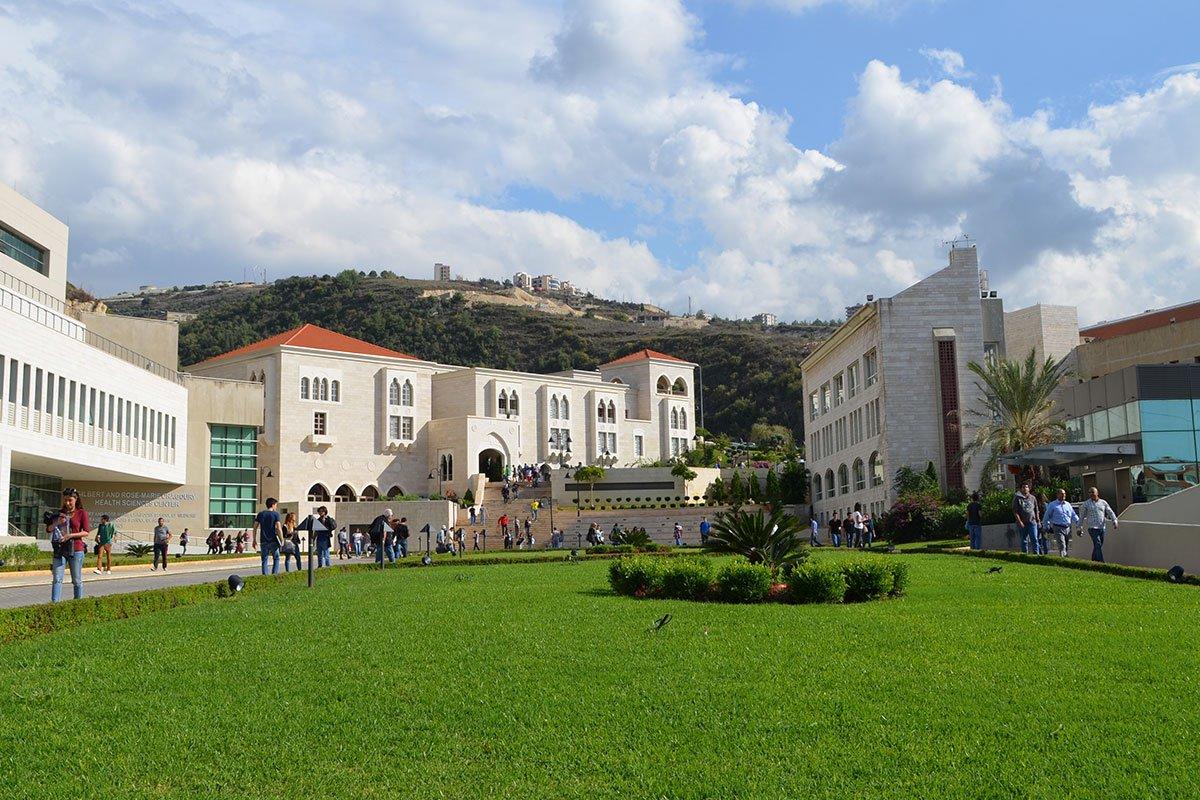Checking In With the Board
LAU President briefs faculty and staff on the Board of Trustees meeting.
Toward the end of the spring semester, LAU President Joseph G. Jabbra briefed the university’s faculty and staff on the latest Board of Trustees (BOT) meeting, which took place last March. A few board members also weighed in on where LAU stands today and its trajectory in the near future.
Dr. Jabbra first pointed to a few key changes at the New York Academic Center: the appointment of Executive Director Nadim Shehadi, Assistant Vice President for Development Nadya Mikdashi, and the relocation of Executive Director of the Arab Institute for Women Lina Abirafeh to New York.
He then proceeded with a detailed account of the university report submitted to the BOT. Highlights from the report included an upcoming accreditation visit by the New England Commission for Higher Education (NECHE) – LAU being the first university in Lebanon to be accredited by NECHE since 2009 – the expansion of university partnerships locally and internationally, an increase in research output, a restructuring of the core curriculum, and the effective integration of the LAU Medical Center-Rizk Hospital.
“The university has begun to inch its way toward a new vision – but not without challenges,” declared Dr. Jabbra. “We have decided, board and university, to transform LAU into an institution of innovation par excellence,” he added, referring to the recent inauguration of the Fouad Makhzoumi Innovation Center, and its dual purpose.
The first is academic, which calls for “a revolution in how students learn;” and the second entrepreneurial, whereby LAU would instill in its students a sense of creativity that goes deeper than innovation. “If jobs are going to disappear in the millions, our challenge is to bring together the human being and the machine in a way that will catapult the institution with incredible energy into the future, shepherding technology and not driven by it,” Dr. Jabbra said.
In a separate commentary, BOT Chairman Peter Tanous agreed: “We are going to create a curriculum for the Fourth Industrial Revolution, as defined by LAU faculty.” He spoke about the different “universe” high-school graduates are entering today, compared to that of their parents’. “This is the future of LAU with this board, this faculty and staff; to get LAU at the leadership of the education of the future.”
To that extent, Dr. Jabbra laid down the strategic steps that the university will undertake, in line with its Third Strategic Plan (SPIII). LAU will establish courses in Artificial Intelligence (AI) and a data analytics center, and will optimize the intellectual capital of the institution by hiring more faculty members. A plan for interdisciplinary learning is already in place, with schools working together on different fronts, and “the instruments of liberal arts” – critical thinking, intellectual ability and flexibility, teamwork talents, communication and writing skills, to name a few – fostered in every student before graduation.
On financial updates, the president touched on the gravity of the economic crisis in Lebanon affirming that the university is working hard to mitigate the risks. Priority areas that will receive funds, as Dr. Jabbra explained, will be research endeavors and financial aid “in order to secure the future of the institution.” During the past academic year alone, LAU gave more than $40 million in financial aid and hopes to raise funds for more.
Board member, Dr. John Shammas, had a particularly optimistic outlook. “I see Lebanon as the Boston of the Middle East – multiple universities working side by side for higher education,” he said, noting in particular the “powerful enthusiasm across LAU’s constituents that has had a contagious effect, from the president to the provost and deans all the way to the students.”
